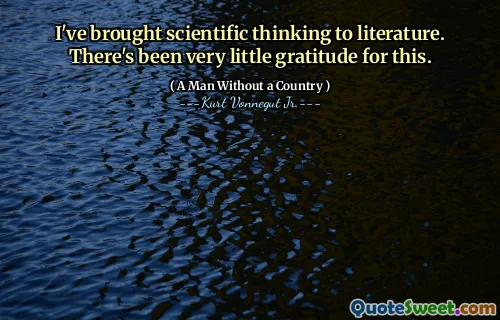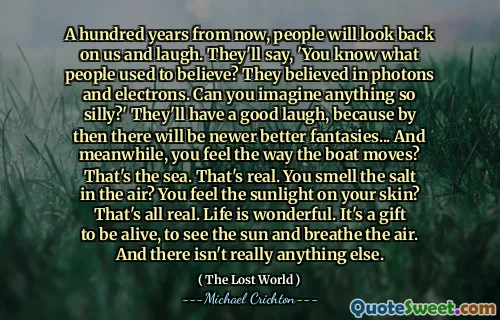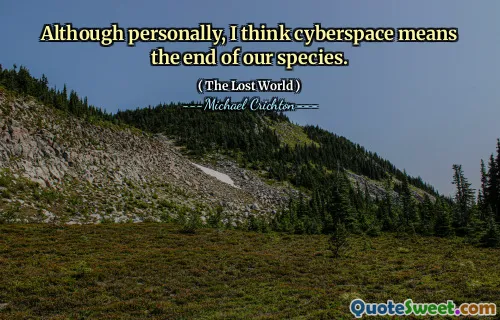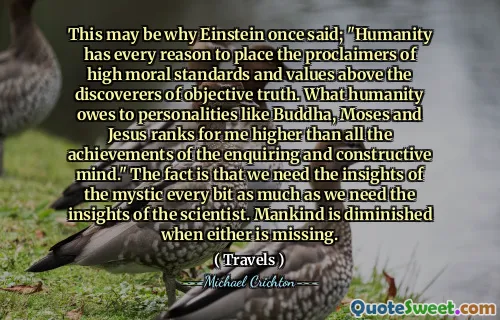Given cognitive vulnerabilities, it would be convenient to have an arrangement whereby reality could tell us off; and that is precisely what science is. Scientific methodology is the arrangement that allows reality to answer us back.
In her book "Plato at the Googleplex," Rebecca Goldstein argues that human beings possess inherent cognitive vulnerabilities that can lead them to misunderstand or misinterpret reality. To counteract these shortcomings, she suggests that we need a framework through which reality can provide feedback. This framework is embodied in scientific methodology, which serves as a means for us to test our understanding against the actual workings of the world.
Goldstein emphasizes that science acts as a corrective mechanism, enabling us to explore questions and receive empirical answers. By engaging with science, we create a structured approach that allows reality to respond to our inquiries, helping us navigate our cognitive biases and enhancing our grasp of the truth. This relationship underscores the importance of scientific inquiry in shaping our comprehension of existence.





